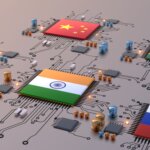Nvidia CEO: “decades” before US reaches chip supply chain independence
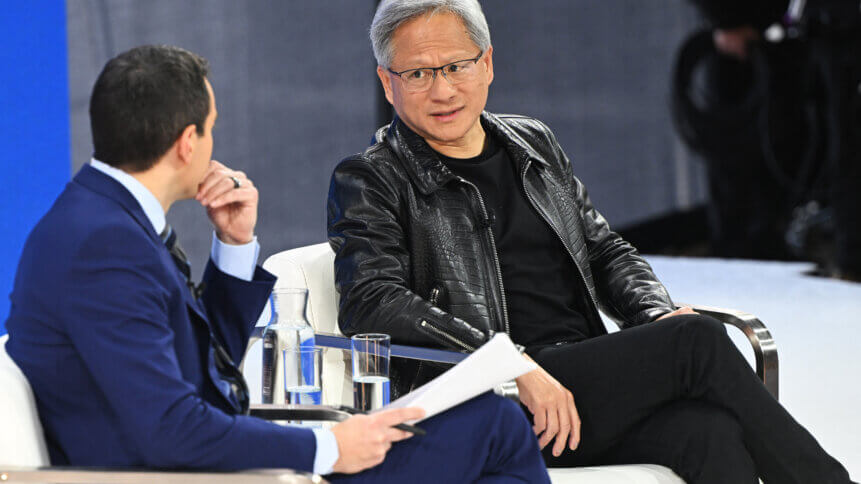
|
Getting your Trinity Audio player ready...
|
- The CEO of Nvidia indicates a lengthy journey ahead for a crucial Biden administration goal of reshoring more of the chipmaking industry to the US.
- Huang reiterated Nvidia’s dedication to China, which remains the most significant chip market.
- Can Washington succeed in reshoring the US chip supply chain?
The Biden administration’s aggressive quest to reshore the chip supply chain has emerged as a long-term strategic priority for the United States, driven by concerns over national security and a desire to reduce dependency on foreign sources. The intricate interdependencies within the semiconductor ecosystem, coupled with the pivotal role these chips play across diverse industries, underscores the gravity of this pursuit. However, according to Jensen Huang, CEO of Nvidia, America’s journey towards chip independence will be prolonged, tkaing anything from one to two decades to achieve.
And it’s in no sense clear that the US has that kind of time on its side.
Huang’s perspective, shared during the recent New York Times‘ DealBook Conference, sheds light on the realistic timeline envisioned by industry leaders. The Nvidia CEO predicts that US chipmakers are at least a decade away from achieving supply chain independence from China. In short, the journey towards chip supply chain independence is a complex and dynamic endeavor for the US, rather than something that can be achieved even within the government of a two-term President, able to hold consistently to the policy and devote billions of dollars to the task.
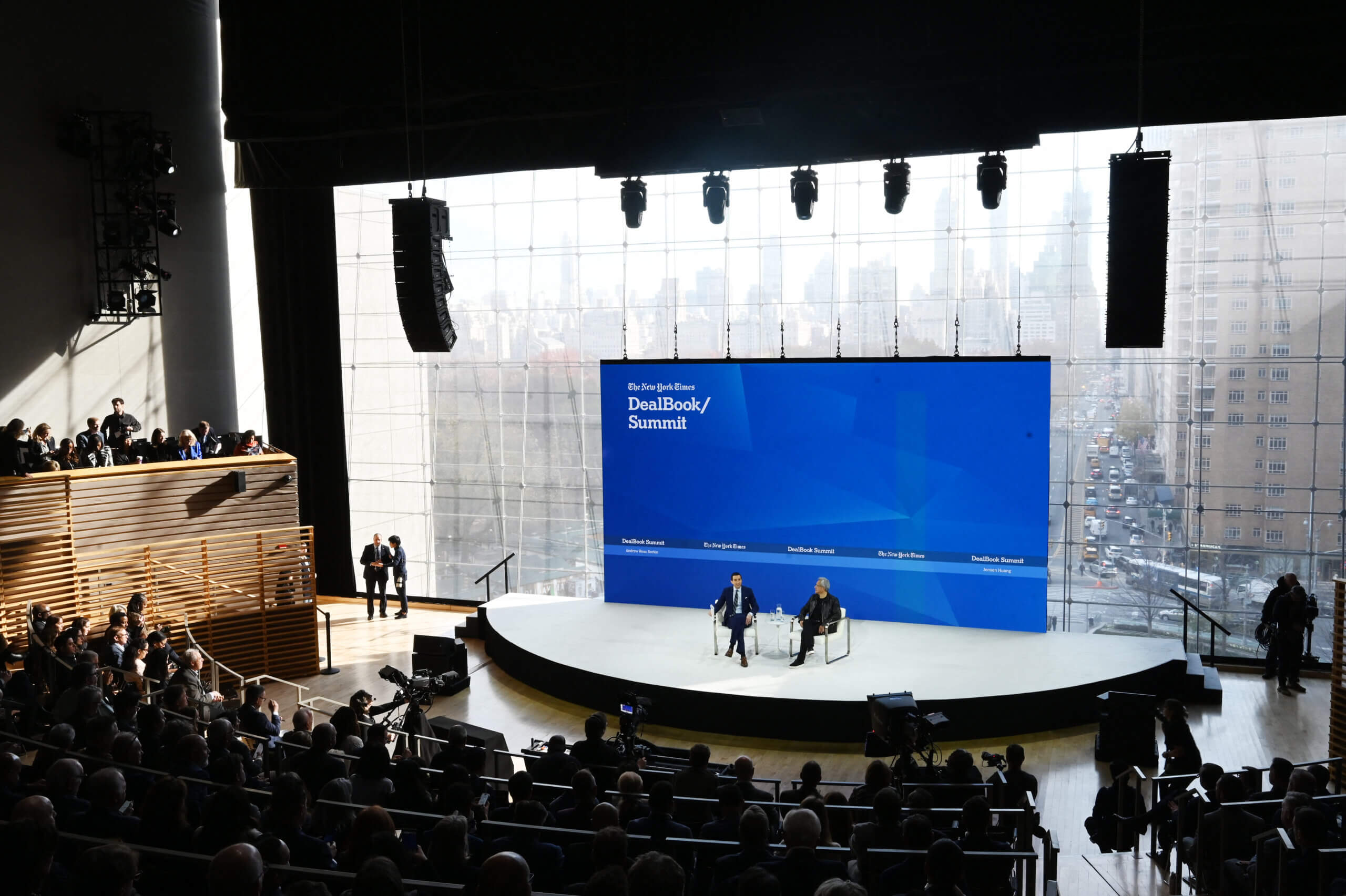
(L-R) Andrew Ross Sorkin and Jensen Huang speak onstage during The New York Times Dealbook Summit 2023 at Jazz at Lincoln Center on November 29, 2023 in New York City. (Photo by Slaven Vlasic / GETTY IMAGES NORTH AMERICA / Getty Images via AFP)
Addressing the conference, Huang explained the global nature of his company’s products, highlighting their dependence on various components worldwide, not solely from Taiwan, where crucial elements are manufactured. “We are somewhere between a decade and two decades away from supply chain independence,” he said. “It’s not really a practical thing for a decade or two.”
That indicates a lengthy journey ahead for the crucial Biden administration goal of reshoring more of the chipmaking industry to the US. The President has advocated for bipartisan legislation to bolster the establishment of manufacturing facilities domestically. Several major companies, including Taiwan Semiconductor Manufacturing Co (Nvidia’s key manufacturing partner), Samsung Electronics Co. and Intel Corp. plan to expand their US operations.
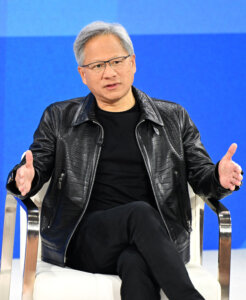
Jensen Huang speaks onstage during The New York Times Dealbook Summit 2023 at Jazz at Lincoln Center on November 29, 2023 in New York City. (Photo by Slaven Vlasic / GETTY IMAGES NORTH AMERICA / Getty Images via AFP).
As the Nvidia CEO put it, the US is confronted with the challenge of reducing reliance on overseas chipmaking as the world grapples with semiconductor shortages and geopolitical shifts. From policy considerations to technological innovations, this critical endeavor has multifaceted aspects. While reshoring the chip supply chain is a compelling objective, the journey is fraught with challenges.
Establishing or expanding semiconductor manufacturing facilities requires significant investment, time, and overcoming technical hurdles. Additionally, global collaboration in the semiconductor industry poses complexities in achieving complete independence. Even Europe aims to make its domestic industrial capacity more self-sufficient, while recognizing that self-sufficiency may be unattainable.
As Ursula von der Leyen, President of the European Commission, said in her remarks introducing the EU Chips Act: “It should be clear that no country—and even no continent—can be entirely self-sufficient.” Separately, in a 2023 Semiconductor Industry Outlook report by Deloitte, analysts predicted that replicating the capabilities of Asian manufacturing locations would not be easy.
“Until the supply chain, pandemic, and trade issues surfaced, Asia had secured a supply of raw and manufactured materials to make hundreds of components. Replicating and building that model in multiple geographically unconcentrated new locations would likely take years or even decades,” the report reads.
The CEO of Nvidia is committed to China
Separately, Huang reiterated Nvidia’s dedication to China, which remains the most significant chip market in the world. Recently, the company faced restrictions on selling its most advanced AI processors to China following export limitations imposed by the US government – restrictions which were further tightened last month.
The US chip giant was reportedly set to develop another collection of customized AI chips for the Chinese market following the prohibition of its A800 and H800 GPUs, designed for Chinese clients under the October update to Washington’s export control regulations.
“We have to come up with new chips that comply with the regulation, and once we comply, we’ll go back to China,” he said at the New York Times‘ DealBook conference. “We try to do business with everybody we can. On the other hand, our national security matters. Our national competitiveness matters.”
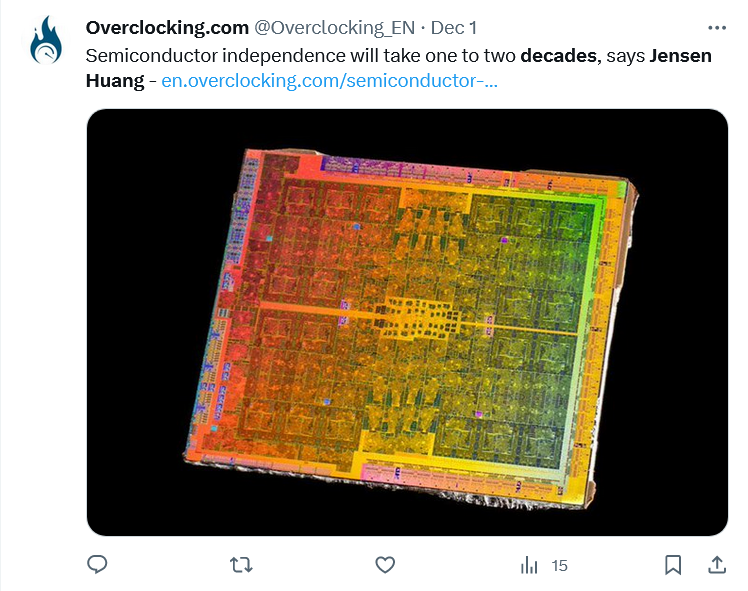
The prediction from Huang has had a sobering effect.
Nvidia cautioned in its third-quarter earnings report on November 21 that it anticipates adverse effects from US export controls in the upcoming fourth quarter. The company has faced escalating export controls, constraining its capacity to supply its most advanced GPUs – crucial for generative AI – to China. But Huang acknowledged that China might discover a means to acquire the technology or motivate domestic chipmakers.
He emphasized though that Nvidia maintains a decade-long lead over such domestic companies, explicitly mentioning the sanctioned Chinese manufacturer, Huawei.







